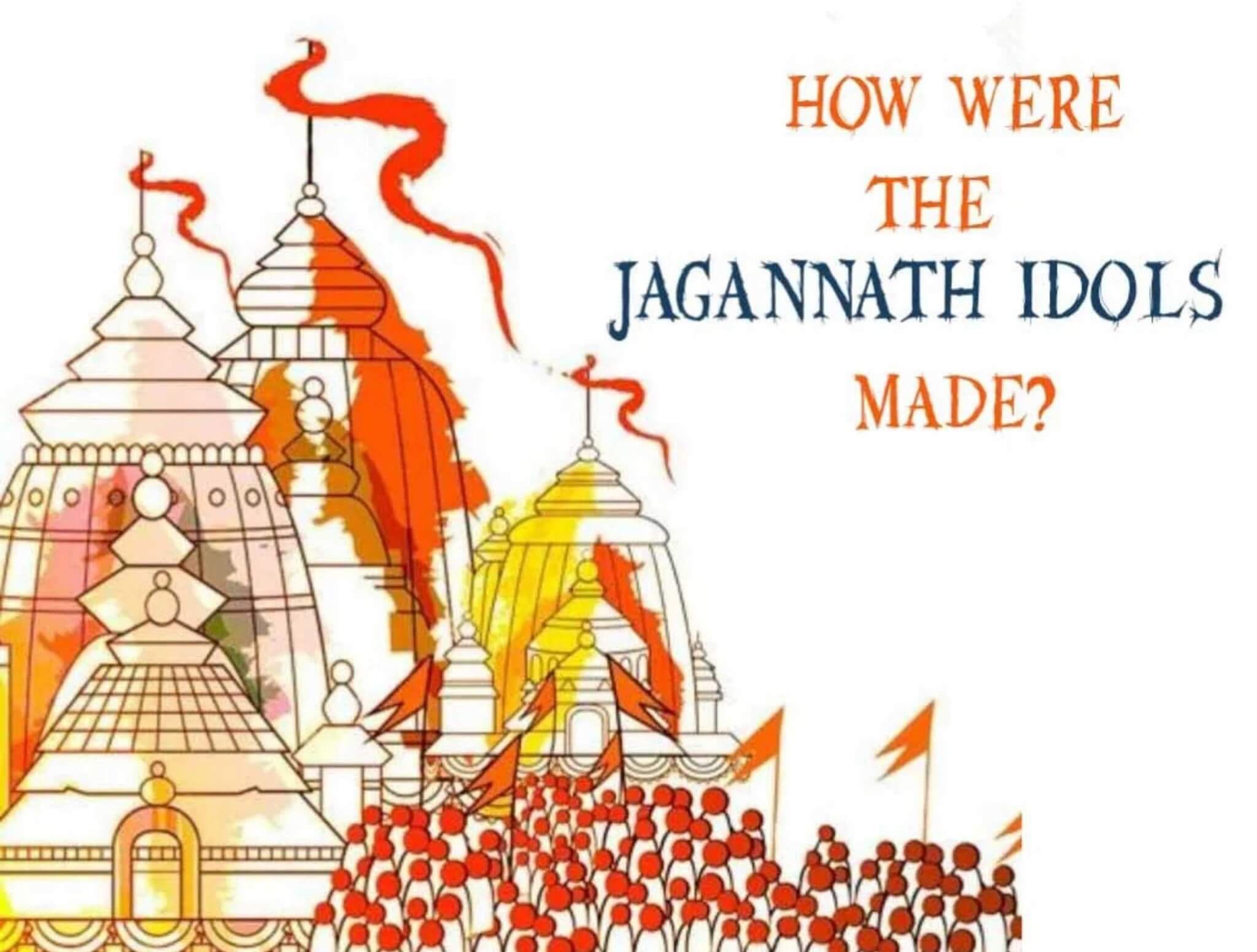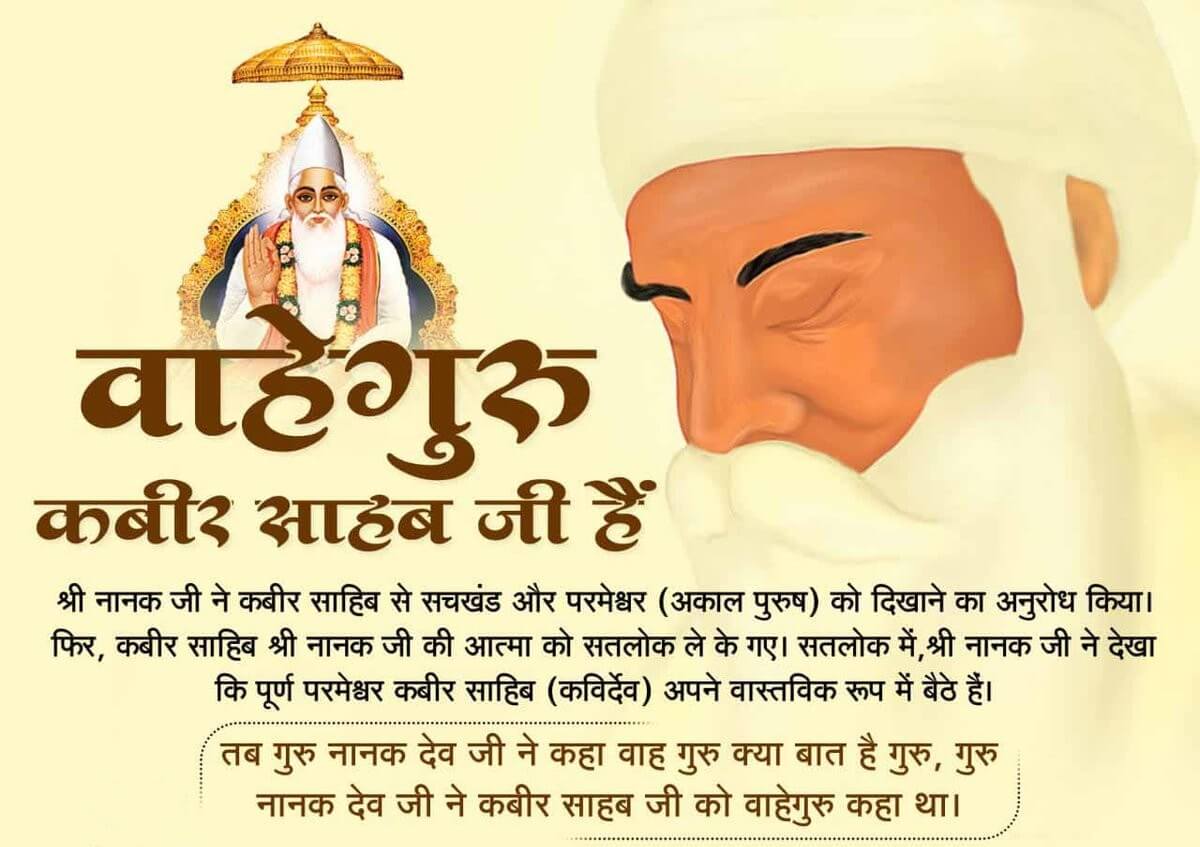Summary of Karma Bodh
In Kabir Sagar, the 24th chapter, Karma Bodh, is found on page 162.
Parmeshwar Kabir Ji's Explanation of Karma:
Mere hansa bhai shuddh swaroop tha jab tu aaya.
Karmon ke bandhan mein phans gaya taaten jeev kahaaya.
Parmeshwar Kabir Ji explains that the soul, once pure and divine in Satlok, voluntarily fell into the trap of Kaal Brahm’s schemes, leading to its entanglement in the bondage of karma and earning the title "jeev" (living being). In Satlok, all necessities were available without any effort, but in the domain of Kaal Brahm, the rule of karma was established, mandating that actions determine rewards or punishments.
In the Shrimad Bhagavad Gita, Chapter 3, Verses 14-15, it is stated:
- All beings originate from food.
- Food produces seed (virility), which leads to the creation of all living beings.
- Food is produced through rainfall, and rainfall results from yagna (sacrificial actions aligned with scriptures).
- Actions originate from Brahm (Kshar Purush), indicating that the principle of karma was established by Brahm.
As the actions performed by beings vary, so do the consequences they must endure. Brahm (Kshar Purush) himself was created by "Akshar", i.e. the eternal, indestructible Supreme God. This Supreme God is perpetually established as the deity of all yagnas and must be worshiped as the ultimate object of devotion.
Question: How many types of karma are there?
Answer: Karma is of two types: one is shubh karma (virtuous actions), and the other is ashubh karma (sinful actions), also referred to as punya karma and paap karma.
- Good Karma (Punya Karma): Acts like devotion in accordance with scriptures, charity, altruism, feeding the hungry, helping the helpless, showing compassion, treating those weaker as friends, seeing other women as mothers or sisters, speaking the truth, believing in non-violence, serving and respecting saints, devotees, parents, and elders. These are considered auspicious or good deeds.
- Bad Karma (Paap Karma): Performing devotion in a self-styled manner disregarding scriptures, theft, assaulting or exploiting women, looking at other women with impure intentions, consuming meat, alcohol, or intoxicating substances, taking bribes, robbery, and committing acts of violence are considered inauspicious deeds or sins.
Question: How does the bondage of karma form?
Answer: Kaal Brahm has divided karma into three categories:
- Accumulated Karma (Sanchit Karma): These are the good and bad deeds performed by the soul across various lifetimes that have yet to be experienced. They remain stored.
- Destined Karma (Prarabdh Karma): These are the deeds the soul experiences in its lifetime, averaged from accumulated karma. For example, if a soul has 1000 bad deeds and 500 good deeds, an average is taken to form prarabdh karma. If 20% of both is considered, it results in 50 bad deeds and 25 good deeds as prarabdh karma, forming the soul's destiny.
- Active Karma (Kriyaman Karma): These are the actions performed by the living being in its current lifetime. Out of these, 75% are predetermined by prarabdh and are unavoidable, while 25% are performed independently. However, meeting a Perfect Saint can change this scenario.
Question: Is it true that a soul is free to act independently?
Answer: A soul is free to act only in 25% of its deeds. During its lifetime, 75% of actions are bound by prarabdh, leaving the soul constrained. However, meeting a Perfect Saint can alter this condition. Prarabdh also includes circumstances of good and bad company.
Example:
King Dashrath performed a yagna for a worthy son, which was an independent active deed. His other children—Bharat, Lakshman, Shatrughan, and daughter Sharda—were received as part of prarabdh.
- Lord Ram's marriage to Sita and the 14-year exile were part of prarabdh.
- Hunting animals during the exile was an independent action.
- Cutting off Surpanakha's nose by Lakshman was an independent deed.
- Sita's abduction was prarabdh for both Sita and Ravan.
- The imprisonment of 33 crore gods was prarabdh.
- Killing Sugriv's brother Bali by Ram was an independent act, later becoming stored karma that had to be repaid.
In Krishna's incarnation, Ram's soul had to suffer the result of this stored karma: the hunter who shot a poisoned arrow at Krishna's foot was Bali's soul.
- Ravan's death and the release of 33 crore gods from captivity were prarabdh.
- Krishna's eight marriages were part of prarabdh, as was his love for Radha.
- His indulgence with gopis was also prarabdh.
- Rescuing 16,000 women from captivity and keeping them for his pleasure was an independent action.
- Healing Kubja was prarabdh, but indulging with her was an independent deed.
- Killing Kansa was prarabdh.
- Killing Keishi, Chanur, and Putna was an independent action, as they were sent by Kansa through persuasion or force.
Understanding the accounting of karma is essential—comprehend more from what is briefly explained.
Question: Does the result of independent actions (kriyaman karma) manifest in the current life?
Answer: The results of some actions are experienced in the current life, but this happens under special circumstances.
Example: King Dashrath once stood guard near a lake at night. The lake was used by sages for drinking water but was often polluted by wild animals. King Dashrath voluntarily took this duty, believing the blessings of the sages had granted him sons like Ram, Lakshman, Bharat, and Shatrughan. However, Lord Ram’s birth was not due to the yagna; it was predetermined in Dashrath’s prarabdh (destiny). The sages had conducted the yagna, which is why they were revered.
One night, Shravan Kumar, a devoted son, was carrying his blind parents in a yoke-like structure with cradles at both ends as they journeyed to holy places. His parents felt thirsty, and Shravan went to the lake to fetch water. Hearing the sound of water being filled, King Dashrath mistook it for a wild animal and shot an arrow, fatally wounding Shravan. Crying out "Oh Ram," Shravan collapsed. Realizing his mistake upon hearing the cry, King Dashrath approached the dying boy, who was writhing in pain.
When Dashrath asked Shravan for his name and details, Shravan explained the situation and requested that Dashrath bring water to his thirsty parents without disclosing his death until they had drunk it. Shravan died after making this request.
Carrying a water pot, Dashrath approached Shravan’s parents. Hearing footsteps, the father called out, "Son Shravan, have you fetched water?" King Dashrath remained silent and began offering water. Suspecting something was wrong, the parents asked, "Why aren’t you speaking? Have you grown tired of us? If so, tell us the truth and leave us here. We don’t want to burden you."
Finally, King Dashrath had to reveal the truth. On hearing this, the parents began lamenting and cursed Dashrath, saying, "Today, we die from the grief of losing our son. One day, you too will die grieving the loss of your son." Despite Dashrath’s attempts to console them and his offer to take care of them with servants, the parents succumbed to their grief and died in agony.
This curse affected King Dashrath in the same lifetime. When Lord Ram went into exile, Dashrath climbed to the highest roof of his palace to watch him leave. Standing on the edge, he strained to catch a last glimpse of Ram by standing on his toes. He lost his balance and fell to his death.
This untimely death was not part of Dashrath’s prarabdh (destiny). It occurred due to the curse of Shravan and his parents, making it the result of his kriyaman karma (actions in the current life). After his death, Dashrath's soul entered the realm of spirits (ghostly and ancestral beings). When Sita performed the rituals for her ancestors during exile, Dashrath was seen seated among the ancestral spirits.
King Dashrath’s death was a result of his active karma in the present life, not his destined prarabdh.
Another Example:
King Drupad's daughter was named Krishna, but she became widely known as Draupadi because she was the daughter of King Drupad. Draupadi was unmarried at the time. Her father had constructed a bathing area exclusively for women by the riverbank. During the summer, Draupadi, as usual, went to the river to bathe with her hundreds of companions. There, she saw a sage standing in the water, up to his chest, moving his hands around.
Draupadi observed the sage for a while and realized he wasn’t bathing. She looked around and noticed he had no clothes with him on the riverbank; the sage was blind. Unaware that there was a ladies' bathing ghat nearby, he had come about a hundred feet away from it to bathe. When he heard the voices of the women, he quickly realized that he was at the wrong spot and that this was a bathing area for royal women. Embarrassed, he moved into deeper water, standing chest-deep.
The sage had only a kopin (a small six-inch wide, two-foot-long cloth tied by monks for modesty) with him, and no other garments. He would bathe and let the kopin dry on the grass before wearing it again. However, that day, his kopin had floated away in the river, leaving him naked. Standing in the water, he waved his hands around, hoping to catch some cloth drifting by so he could come out. He was downstream from the ladies' ghat, where the river was flowing.
Draupadi, being wise and spiritually inclined, initially thought of bathing first and then speaking to the sage about God. After bathing, however, she noticed that the sage was still standing there in the same condition. Understanding his predicament, Draupadi tore an 8-9 inch wide and 3-4 foot-long piece of her sari and let it float in the river. Unfortunately, the blind sage couldn’t catch it.
She tore 7-8 more pieces from her sari and let them drift, but they too didn’t reach him because the sage couldn’t see. Draupadi, being a young girl, didn’t want to shout instructions, fearing that the sage might feel even more embarrassed and move deeper into the river. The water ahead was much deeper and the current strong.
Finally, Draupadi tore another piece from her sari—by now, her sari was more than half torn—and tied it to the end of a long stick she found in the forest. She stretched the stick toward the sage’s hands. When the cloth touched his hands, he immediately grabbed it. Initially, the sage thought it was a piece of cloth that had floated away, but upon feeling the size and shape of the cloth, he realized that someone had torn their sari to provide it to him.
The sage said, "Oh daughter, may the Creator bless you! You have preserved my dignity by providing a covering. May God grant you countless garments and protect your modesty as you have protected mine."
It is said:
Saadhu bolai sahaj subhaay. Saadhu ka bola mithya na jaay.
(The words of a sage, spoken in sincerity, never go in vain)
Now, let us reflect: Draupadi, being a princess, had a few maidservants with her. She could have asked them to tear a piece from their saris and give it to the sage. However, Draupadi had spiritual wisdom and a virtuous nature from past lives. She thought, If I eat food, my hunger will be satisfied. If my maid eats, her hunger will be satisfied. Similarly, if I give in charity, I will gain merit; if my maid does it, she will gain merit. This is why Draupadi did not let the opportunity slip by.
The sage, after tying the cloth, left the river. By then, the other women had already left, and Draupadi went back too.
Later, Draupadi married Arjun. Following her mother’s command, she became the wife of all five Pandavas.
When King Yudhishthir lost everything, including Draupadi, in a game of dice against Duryodhan, Duryodhan devised a plan to humiliate Draupadi in the royal court. He instructed his brother Dushasan to disrobe Draupadi and seat her on his lap.
At that time, all five Pandavas, the 101 Kauravas, Guru Dronacharya, the charitable Karna, Bhishma Pitamah, Vidur, and other commanders were present in the court. Following Duryodhan’s command, Dushasan grabbed Draupadi’s sari and began pulling it.
Draupadi first looked toward her five husbands, but they had lost her in the dice game and, bound by their principles, they lowered their heads and did not intervene. Draupadi then looked toward the other esteemed men in the court, pleading for help, but they had all partaken in Duryodhan’s corrupt hospitality and had become spiritually degraded.
Among those present was the saintly Vidur, who stood up and rebuked Duryodhan: "Oh Duryodhan! Whose dishonor are you orchestrating? This is your family, your lineage. People will say that you tarnished your own family’s dignity. Act with some wisdom. Do not let arrogance blind you."
In response, Duryodhan insulted his uncle Vidur, calling him a slave’s son and accusing him of always siding with the Pandavas. Furious, Duryodhan slapped Vidur, who then left the court.
If even one of the men in the court—Bhishma Pitamah, Dronacharya, or Karna—had stood up and said, "Duryodhan, do whatever you want with your brothers, but mistreating a woman in the court is against the code of a Kshatriya," the Kauravas would never have dared to touch Draupadi. However, they remained silent.
Readers, reflect on this: What does their remaining seated in the assembly signify? It reveals the extreme moral depravity of their hearts. As Draupadi was being disrobed, Bhishma Pitamah, Karna, Dronacharya, and all the other members of the assembly watched as silent spectators. Why did they remain seated? Clearly, they stayed to witness Draupadi’s humiliation, to see her private parts. What else could explain their silence? Was a bear dance being performed there? Certainly not.
This is why the three—Dronacharya, Bhishma, and Karna—were pierced with arrows and killed. It was the consequence of their sins from the very same life. They should have stopped Duryodhan, and if they couldn’t, they should have walked out of the assembly. By doing so, they would have avoided becoming complicit in the sin.
When someone in a position of power fails to fulfill their duty, they become guilty of a grave sin.
When Draupadi realized that earthly support was false and unreliable, she abandoned all hope in worldly help and turned her trust toward the Almighty. In response, God multiplied Draupadi’s sari endlessly as a result of the piece of cloth she had once given to the blind sage by the river and through the power of his blessing.
Dushasan had the strength of a hundred elephants, while Draupadi was as delicate as a lotus flower before him. Yet, Dushasan was drenched in sweat and exhausted, pulling at her sari. Piles of cloth accumulated, but the sari never ended.
Later, Shri Krishna revealed to Draupadi, “The infinite length of your sari was the result of the cloth you offered to the blind sage before your marriage, when you were bathing in the river.”
Ek cheer ke kaarane badh gaya cheer apaar. Jo main pehle jaanti to, sarvas deti vaar. (She would have offered everything selflessly.)
This was the fruit of Draupadi’s actions in that very life. Such extraordinary outcomes happen only with rare, virtuous souls. The above account is sufficient to illustrate the law of karma and its results.
Question: Can the destiny written by Prarabdh Karmas (fate-determined actions) be changed?
Answer: When a complete Saint—either Supreme God Kabir Ji Himself or a saint graced by His blessings—is attained, the sinful actions written in Prarabdh (destiny) or accumulated karmas are erased through true worship.
Kabir Jab hi Satnaam hriday dharyo, bhayo paap ko naash.
Jaise chingi agni ki, padai puranai ghaas.”
Garib Maasa ghatai na til badhai, vidhna likhe jo lekh.
Saachaa Satguru meti kar, upar maara mekh.
Garib, jam jaura ja se darein, mite karam ke lekh.
Adli asal Kabir hain, kul ke Satguru ek.
Until one worships through a complete Saint of Kabir Ji, karmic effects cannot be escaped. Kabir Ji has declared: "Karm rekh taari na tare."
Vasistha muni se trikali yogi, sodh kai lagn dharai.
Sita haran maran dasaratha ka, ban-ban Ram phirai.
Meaning: Sage Vashishta was the royal guru of King Dasharatha. He was considered a Trikaldarshi, meaning one who could perceive the past, present, and future. In Janakpuri, he postponed the wedding of Lord Ram and Sita by three days, during which the wedding procession stayed there. Following this event, the tradition of delaying weddings by three days began, though it gradually faded over time.
Why was the wedding postponed by three days? Sage Vashishta explained that the initial timing was inauspicious. A more auspicious time would arrive after three days, and conducting the marriage during this period would ensure a harmonious and trouble-free domestic life for the couple.
The marriage of Lord Ram and Sita was performed at the auspicious time as advised by Sage Vashishta. However, Kabir Parmeshwar Ji revealed that even this auspicious timing did not alter the destined fate (Prarabdh).
Immediately after the wedding:
- Lord Ram, Sita, and Lakshman were exiled to the forest.
- Sita was abducted.
- Lord Ram wandered through the forest in despair.
- King Dasharatha died in grief over his separation from his son.
- The royal household was plunged into calamity.
Without the guidance of a complete Saint, one must endure the fruits of their karma.
From Page 165 of Karma Bodh:
Kabir karm faans chute nahi, keto karo upaay.
Sadguru mile to ubarai, nahi to pralaya jaay.
This marks the conclusion of the Karma Bodh chapter from Kabir Sagar.



